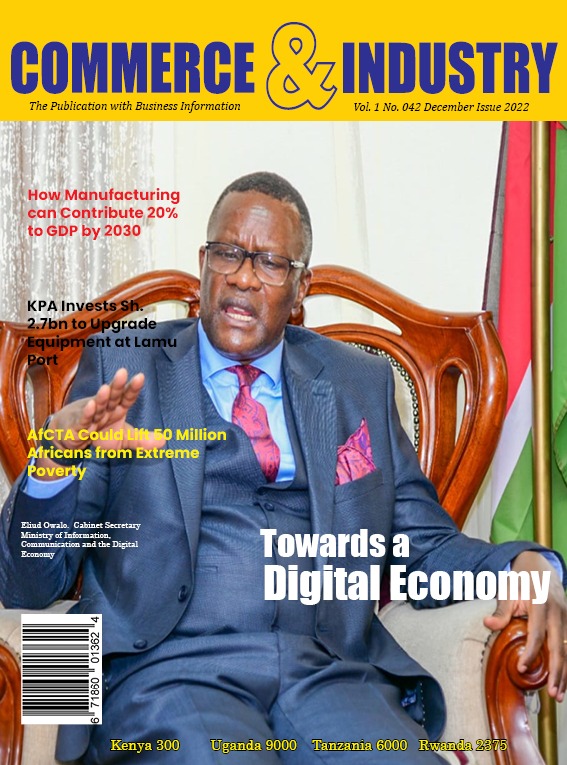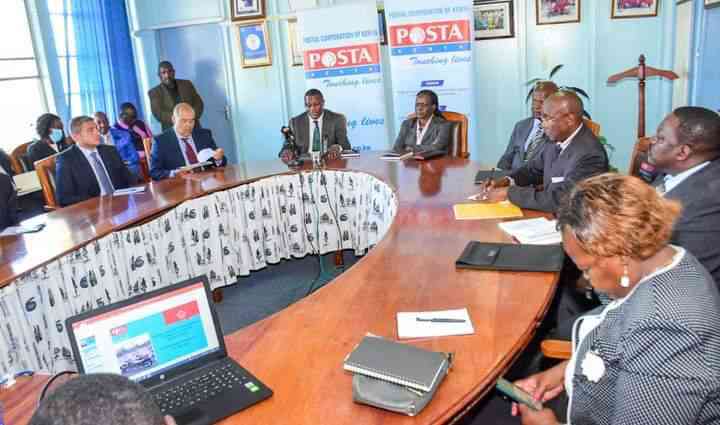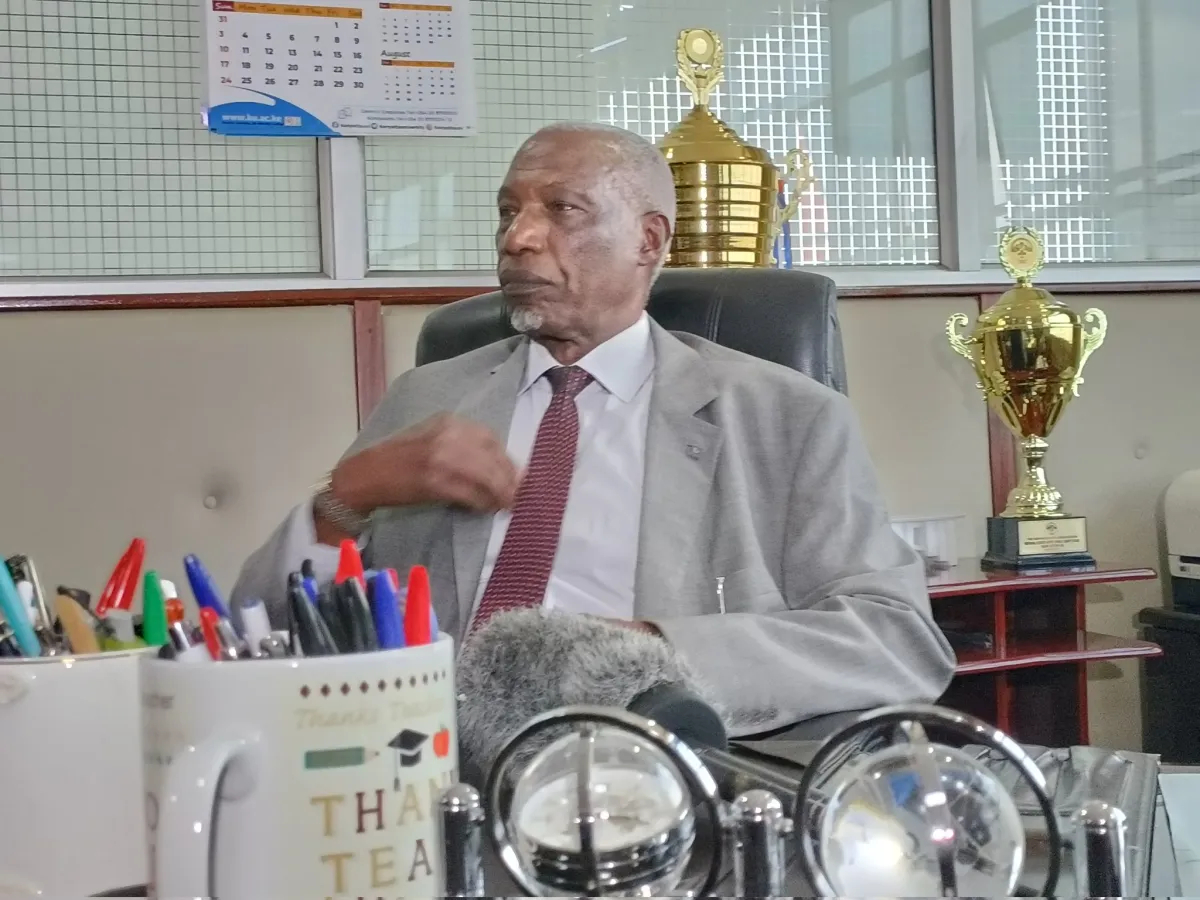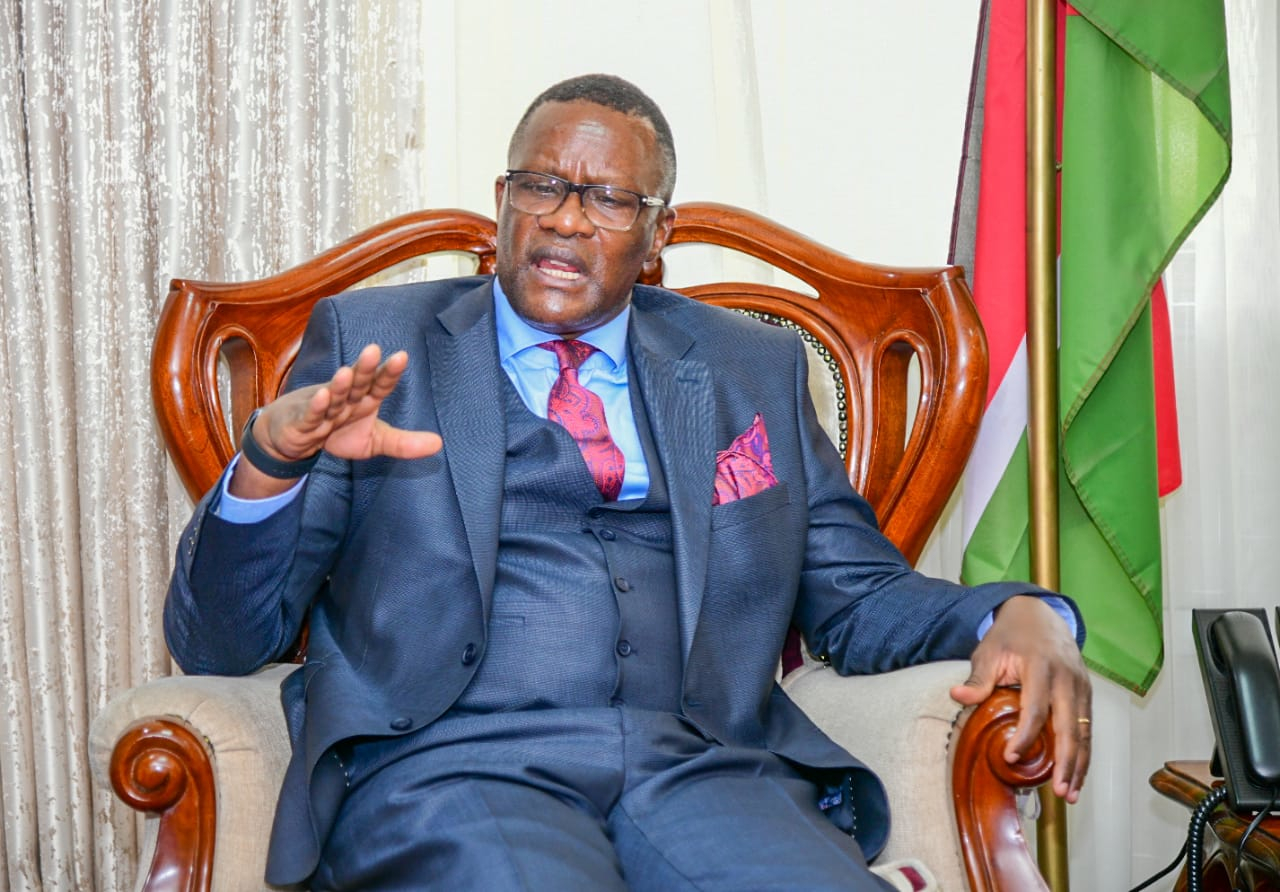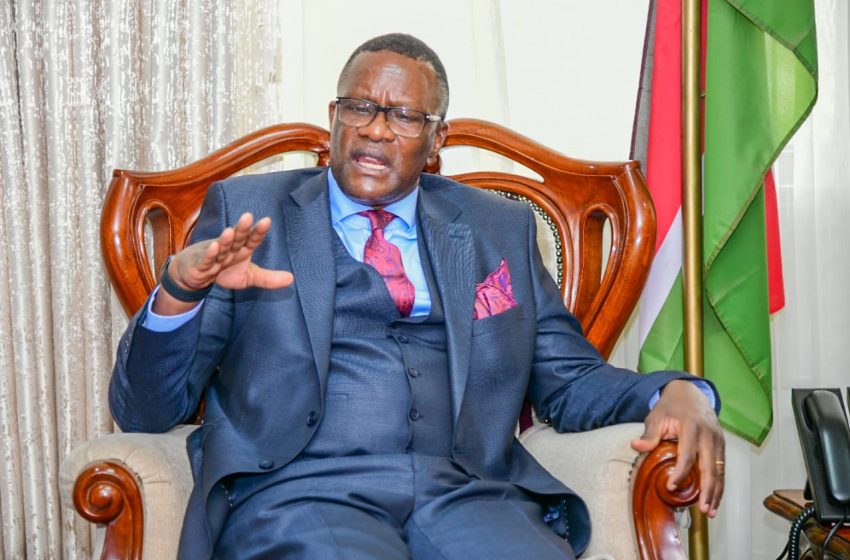
Kenya Strategizes Towards a Digital Economy
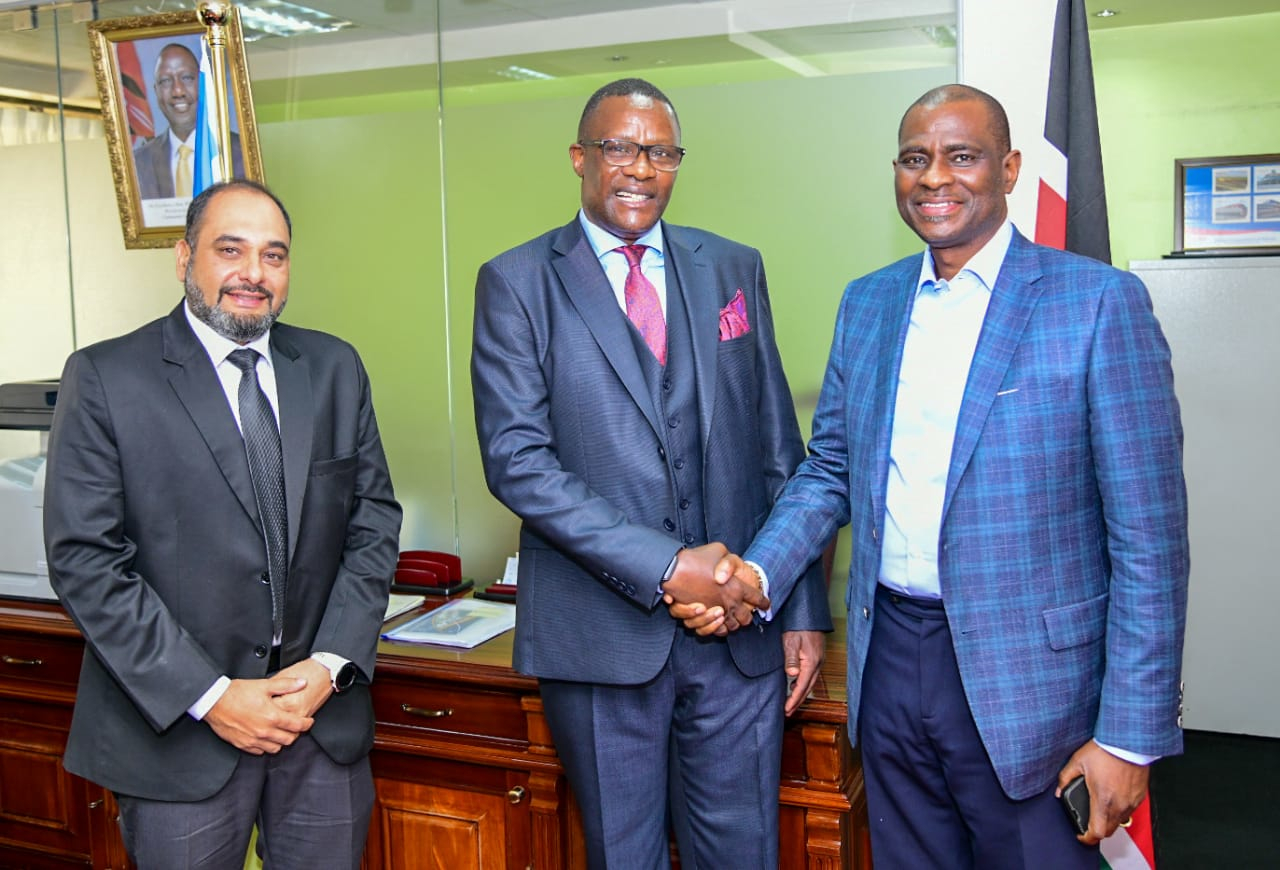
Kenya has prioritized transformation into a digital economic powerhouse in Africa in order to compete favourably in an increasingly regionalized global economy. Mr. Eliud Owalo, Cabinet Secretary, Ministry of Information, Communication and the Digital Economyspoke to Commerce & Industry magazine on the government’s strategy. Excerpts follow.
Commerce & Industry (C&I): Science, Technology and innovation are considered a critical catalyst for fast-tracking modernization and transformation of the Kenyan society into a middle income country. The country has subsequently positioned herself to become digital economy.
What is the progress achieved so far? What policies and projects are ongoing in this regards and at what stage are they?
CS Eliud Owalo: The Kenya Kwanza Government is keen to expand Kenya’s digital superhighway by 100,000 kilometers, in line with its development plan. The government also seeks to create 25,000 free digital hotspots across the country, in order to include more Kenyans in the digital and creative economies.
We have developed several frameworks to drive this development, such as the Digital
Economy blueprint for Africa, the national broadband strategy, the national ICT Master Plan
and the ICT Strategic Plan aimed at transforming the use of ICT to spur economic growth.
The government is also addressing infrastructure capacity limitations and institutional frameworks with a focus on cyber security and data protection.
C&I: ICT remains a critical component of Kenya’s political, economic and social development and achievement of Vision 2030. Please delve into the government’s digital economy strategy – its various components, stakeholder participation, partnerships and targeted milestones.
CS Owalo: The Digital Economy blueprint recognizes five fundamental pillars as catalysts for a robust Digital Economy. These are:
a) Digital Government;
b) Digital Business;
c) Infrastructure;
d) Innovation Driven Entrepreneurship and
e) Digital Skills and Values
The Digital Economy Blueprint and the Digital Economy Strategy both recognize the cross-cutting issues necessary to support the five pillars, one of them being the existence of a Data
Protection framework. For these reasons the Data Protection Act was enacted in November 2019 that also established the Office of the Data Commissioner.
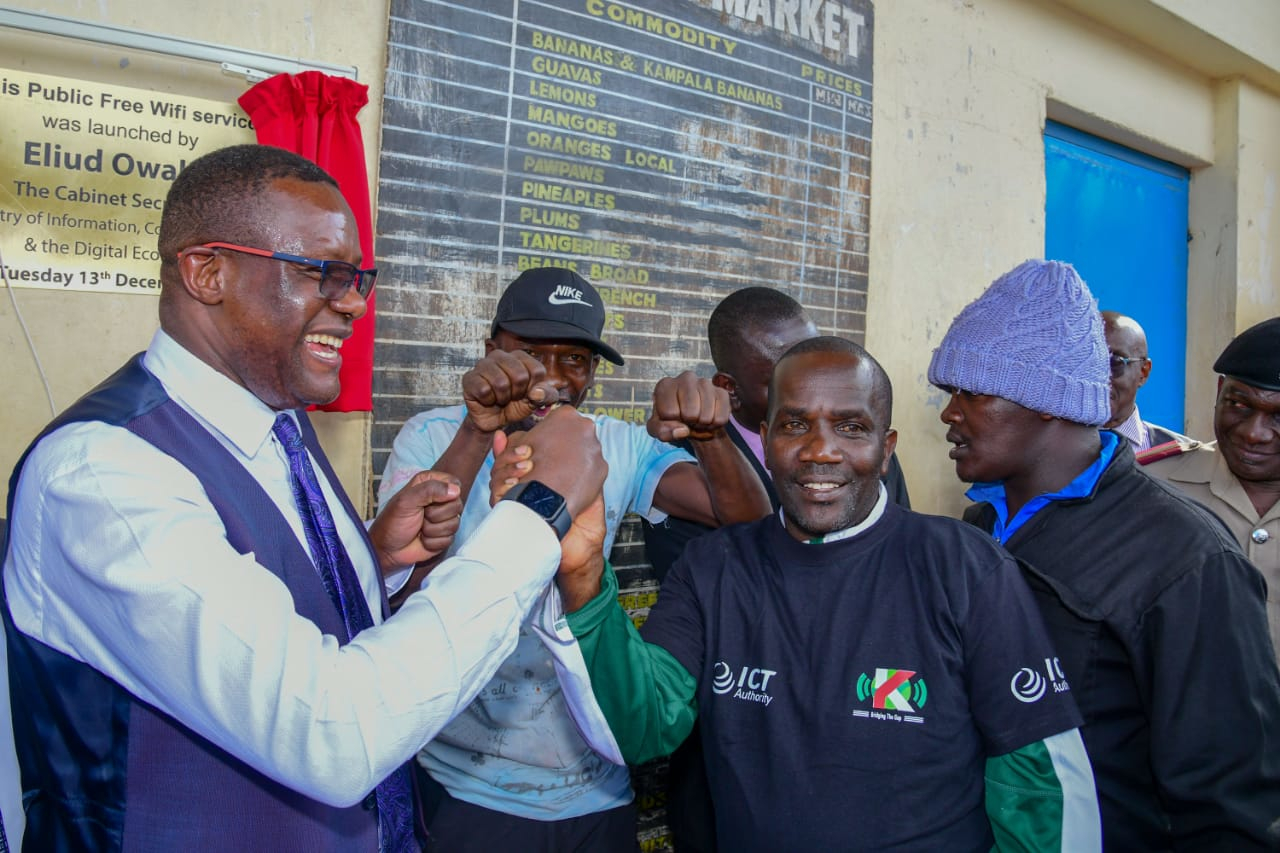
C&I: The Frontier Tech Markets are anticipated to hit exponential growth soon and Kenya is one of the Sub-Saharan countries in danger of being left behind when this happens. Please give some insights into the government’s Frontiers Digital Masterplan for 2022-2031 and the roadmap towards achieving market readiness.
CS Owalo: The Ministry developed and launched a ten-year Kenya National Digital Masterplan [2022-2032] to guide the country forward on ICT deployments and investments. This Masterplan outlines a structured roadmap on the delivery of ICT Infrastructure and Services, as well as the development of ICT skills. It also provides guidance on investment priorities to both local and external investors. Kenya Kwanza Government commits that the implementation of the Digital Master Plan will adhere to environmental agreements in which Kenya is a signatory. This will be fostered through the ICT green initiative programme in an aim to promote green economy and reduce the associated impacts of the ICT devices and equipment to the environment through implementing e-waste Management Centers in collaboration with NEMA, dubbed E-Waste Electrical and Electronic Equipment Centre (WEEE Centre) at Konza. The center will offer training facilities and safe disposal of electrical and electronic waste.
C&I: Research and innovation remain key to achieving a digital economy. Please elaborate on how you are working with the education sector especially Universities and how sustainability is being cultivated.
CS Owalo: The Ajira Digital program is government initiative that seeks to prepare the youth for the future of work with free training on how to work online. So far, cumulatively, over 2 million youths are working on digital and digitally- enabled jobs. 878 youths have worked on Judiciary Transcription jobs, scanning, and data entry through this program. However, as envisioned in the Digital Mater Plan 2022, the Ajira Program shall be expanded, especially also to special interest groups. The training will encompass areas such as programming, web and software development, computer networking, cyber security training, block chain technology, machine learning and Artificial Intelligence.
C&I: Funding has been a reason/excuse harped on by successive governments for delayed deployment of technology to achieve economic growth and better governance. What is the commitment and safeguards in place by the current administration to ensure tangible progress is achieved in the foreseeable future?
CS Owalo: The government is re-aligning its priorities to respond to the needs of the people. This has necessitated budgetary re-adjustments and re-allocation of the limited resources, in order to address the pressing national issues. However, the government is firmly focused on an empowered digital Kenyan society and is, therefore, committed to facilitating Kenya’s economic transformation by leveraging upon ICT for competitiveness and sustainable human development. I invite all of you to join hands in the viable pursuit of this agenda, for our people and our country.
The Kenya Kwanza dream for our country through the role of this Ministry is a noble and valid dream. It is a dream about a paperless society, driven by modern information and communication technology. It is about a modern society that leverages on technology for job creation and generation of wealth.
We have been charged with the responsibility to play the lead role. We are expected to realize the technological dream for the ministry, but also to make it realizable for the rest of the sectors in the country, by providing affordable and efficient tools, systems and an enabling regulatory environment. Together, we can steer the Kenyan nation to achieve this noble dream.
C&I: What is the envisaged impact of the Digital Economy initiatives in matters public service delivery, governance, economic growth and improved livelihoods?
CS Owalo: The Kenya Kwanza government has pledged to establish 8 regional smart hubs for the landing stations and Internet Protocol (IP) exchange point in Mombasa to enhance connectivity in the EAC region and attract investment in ICT related industries. The project will include an ICT Capacity Development Programme that will involve establishment of a software manufacturing industry and an electronic manufacturing plant with 5,000 software engineers, and production of over 1.2 million electronic devices to take advantage of the regional market.
The programme also entails establishment of an ICT research lab to facilitate testing of ICT equipment and research on new technologies. The Sector will also develop capacity on ICT through training of 755,000 public officers and 20 million citizens to enhance digital skills.
The Kenya Kwanza Government pledges to reduce the cost of calls and data to allow wananchi and especially the youth to use online platforms for entertainment, information and business. The Government plans to roll out 5G Networks and provide the framework and license service providers to roll out 5G Infrastructure, Networks and Services. The 5G network and services will be deployed in various sectors of the economy such as transport, manufacturing, health and agriculture to facilitate socio-economic development.
The Kenya Kwanza Government will also implement the Cellular Mobile Network Infrastructure and Services Development Project Phase II, III, and IV. The Government will continue to roll out communications infrastructure and services in unserved and underserved areas to ensure universal access to ICT services. The project involves connection of (3G/4G) mobile network infrastructure and services in 379 sub-locations in 42 Counties.


